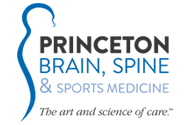Brain Tumors
Brain Cancer & Brain Tumors
Overview, Diagnosis & Treatment
Brain tumors occur when cells in or on the brain begin to grow abnormally. The cause of this growth is not well understood, but genetics and environmental factors may be involved. Since not all brain tumors are alike, doctors classify brain tumors by area of origin, the speed at which they grow and degree of destructiveness to other tissues.
Treatment of Brain Tumors
Although research promises continued innovation in brain tumor treatment, there are three main types of treatment currently in use. These include:
Surgery to remove all or part of the tumor: Surgical removal of a brain tumor depends on the location of the tumor. A tumor can be successfully removed if it has not grown around critical structures like arteries that supply blood to the brain or invaded areas of the brain essential to functions like speech or movement.
Radiation therapy: This treatment involves using a machine to direct a beam of radiation or destructive energy at the tumor. The radiation damages the tumor, causing it to shrink or stop growing.
Chemotherapy: Administering certain medications can cause brain tumors to shrink. Newer treatments actually use the body’s own immune system or hormonal system to shrink tumors. These new drugs produce better results and fewer side effects than older chemotherapy treatments.
Patient-Centered Care for Brain Tumors
The diagnosis of a brain tumor is distressing for you and your family, but advances in research and treatment are steadily improving prognoses and outcomes. Dr. Joseffer and the neurosurgeons at Princeton Brain, Spine & Sports Medicine specialize in the latest neurosurgical techniques to offer our patients the most up-to-date options. We also believe informed patients and families make the best decisions about care, and we provide informative videos and articles on our website. The entire staff at PBSSM is focused on your health and your care. For patient-centered neurological and spinal treatment call us at 215.741.3141 in Pennsylvania, 609.921.9001 in New Jersey, or contact PBSSM online to schedule an appointment.
Request an Appointment
Submit an appointment request on our patient portal or contact our New Jersey and Pennsylvania campuses to speak with a patient advocate.
